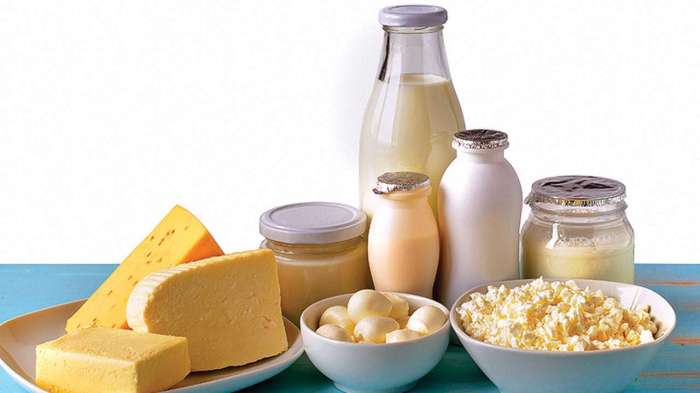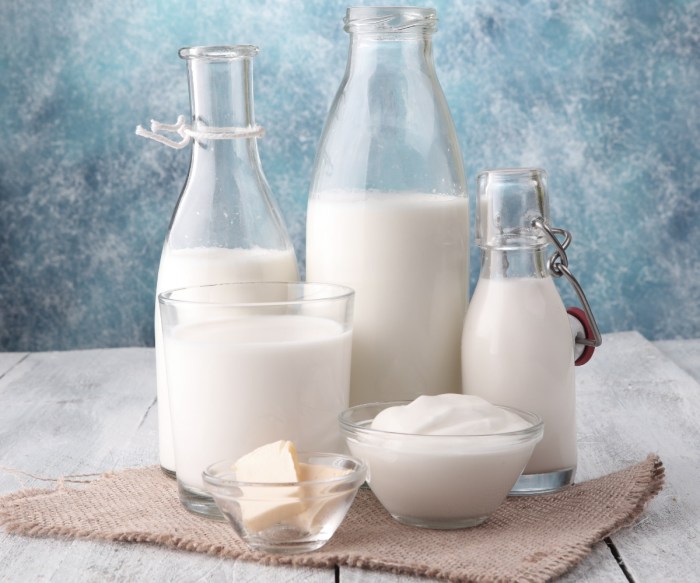Milk and related dairy products should be purchased servsafe, as they play a crucial role in our diet. However, ensuring their safety is paramount to prevent foodborne illnesses. This comprehensive guide delves into the significance of Servsafe certification, explores best practices for handling and storing dairy products, and highlights key regulations for purchasing, storing, and serving them according to Servsafe guidelines.
Servsafe certification is a nationally recognized program that provides training and certification for food handlers, ensuring they have the knowledge and skills to handle food safely. When it comes to dairy products, Servsafe regulations establish specific requirements for purchasing, storing, and serving to minimize the risk of contamination and spoilage.
Dairy Product Safety
Dairy products are a vital part of a healthy diet, providing essential nutrients like calcium, protein, and vitamin D. However, they can also be a source of foodborne illness if not handled and stored properly. Servsafe certification is a nationally recognized program that provides food handlers with the knowledge and skills necessary to prevent foodborne illness.
Foodborne Illnesses Associated with Dairy Products
- Salmonella:A bacteria that can cause fever, diarrhea, and vomiting.
- E. coli:A bacteria that can cause severe abdominal pain, diarrhea, and dehydration.
- Listeria:A bacteria that can cause fever, muscle aches, and diarrhea.
Best Practices for Handling and Storing Dairy Products, Milk and related dairy products should be purchased servsafe
- Purchase dairy products from reputable suppliers.
- Check product labels for expiration dates and any signs of spoilage.
- Store dairy products at proper temperatures (40°F or below).
- Follow FIFO (first-in, first-out) inventory management.
- Clean and sanitize surfaces that come into contact with dairy products.
Servsafe Regulations

Specific Regulations for Milk and Dairy Products
- Milk must be pasteurized to kill harmful bacteria.
- Dairy products must be stored at proper temperatures (40°F or below).
- Dairy products must be handled and prepared in a sanitary manner.
Requirements for Purchasing, Storing, and Serving Dairy Products
Servsafe regulations require food handlers to:
- Purchase dairy products from approved suppliers.
- Store dairy products at proper temperatures (40°F or below).
- Serve dairy products promptly after opening.
- Dispose of dairy products that have exceeded their expiration dates.
Table: Key Servsafe Regulations for Dairy Products
| Requirement | Regulation |
|---|---|
| Pasteurization of milk | Required |
| Storage temperature for dairy products | 40°F or below |
| Sanitary handling and preparation | Required |
| Disposal of expired dairy products | Required |
Purchasing Considerations
Factors to Consider When Purchasing Dairy Products
- Supplier reputation:Choose suppliers with a history of providing safe and high-quality products.
- Product labels:Check labels for expiration dates, ingredient lists, and any allergen information.
- Packaging:Ensure that dairy products are packaged in a way that prevents contamination.
Storage and Handling Procedures: Milk And Related Dairy Products Should Be Purchased Servsafe

Proper Storage Conditions for Milk and Dairy Products
- Store milk and dairy products at 40°F or below.
- Use a separate refrigerator for dairy products to prevent cross-contamination.
- Store dairy products in covered containers to prevent absorption of odors.
Temperature Control and FIFO Inventory Management
Maintaining proper temperature control is essential to prevent the growth of bacteria. FIFO (first-in, first-out) inventory management ensures that older products are used before newer ones, reducing the risk of spoilage.
Step-by-Step Guide for Handling and Preparing Dairy Products
- Check the expiration date on the product label.
- Handle dairy products with clean hands and utensils.
- Prepare dairy products in a clean and sanitary environment.
- Serve dairy products promptly after opening.
- Dispose of any unused dairy products.
Serving and Display Practices

Best Practices for Serving and Displaying Dairy Products
- Proper portioning:Serve dairy products in appropriate portions to prevent overconsumption.
- Cross-contamination prevention:Store and display dairy products away from other foods to prevent cross-contamination.
- Effective display techniques:Display dairy products in a way that is visually appealing and encourages consumption.
Clarifying Questions
Why is it important to purchase dairy products from reputable suppliers?
Purchasing dairy products from reputable suppliers ensures that the products meet quality and safety standards, reducing the risk of contamination and foodborne illnesses.
What is the significance of product labels and expiration dates in Servsafe compliance?
Product labels provide essential information about ingredients, nutritional content, and storage instructions, while expiration dates indicate the product’s shelf life and ensure timely consumption.
How does temperature control play a crucial role in the storage of dairy products?
Dairy products are highly perishable and must be stored at proper temperatures to prevent spoilage and the growth of harmful bacteria.
